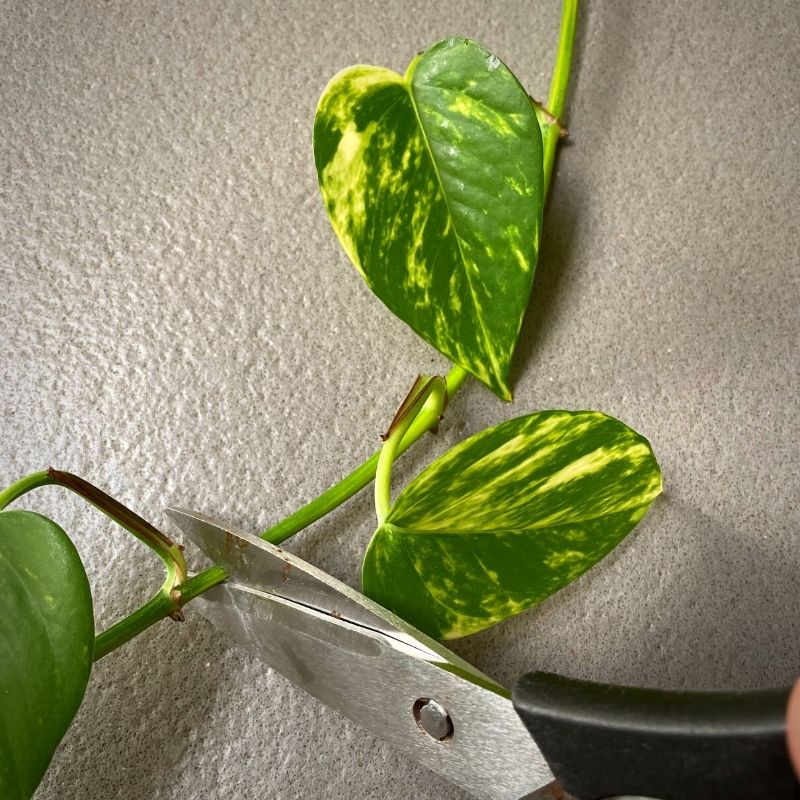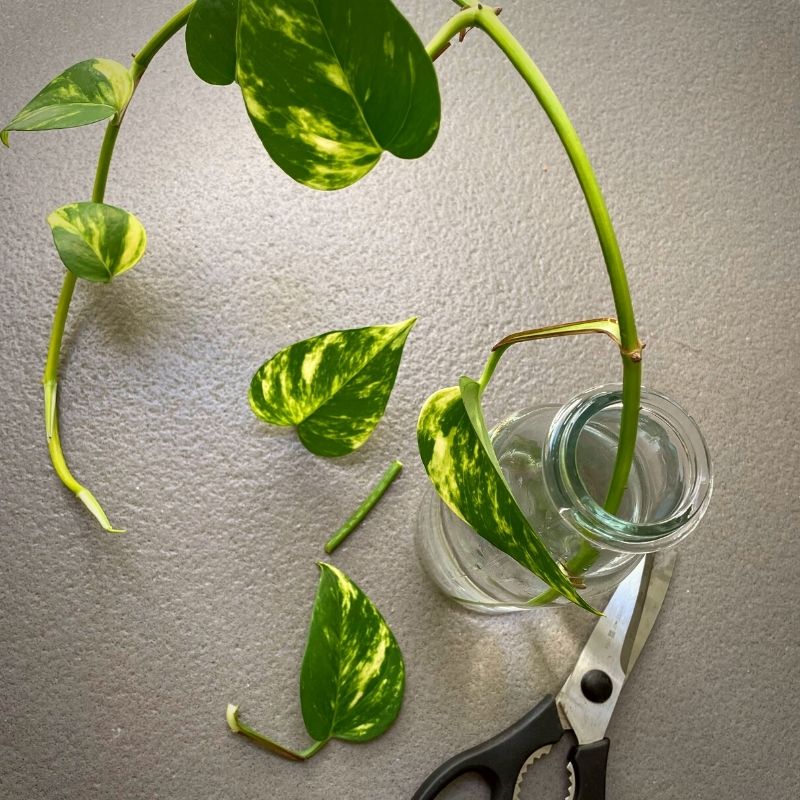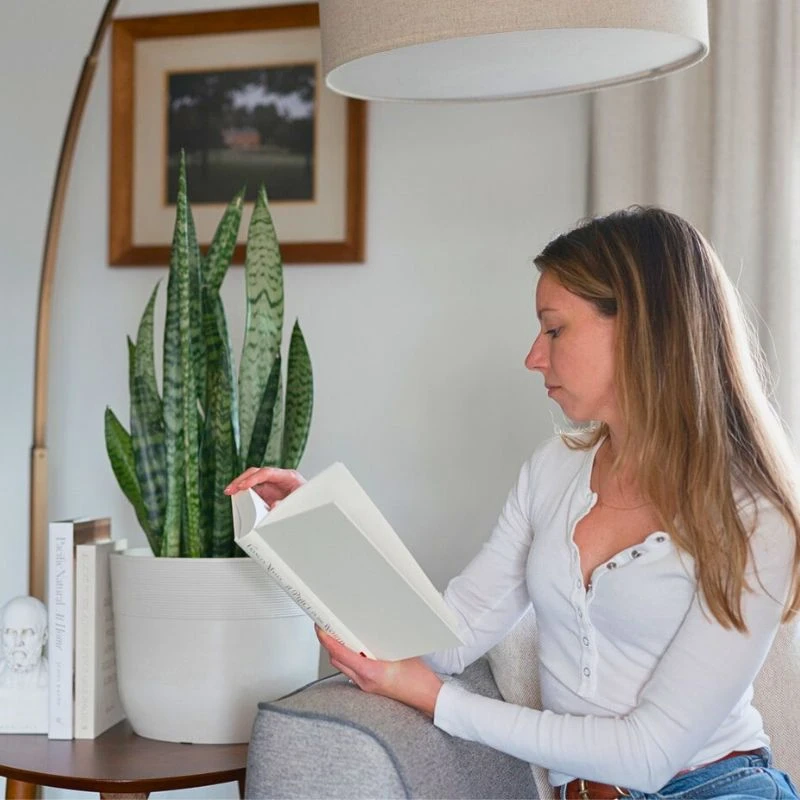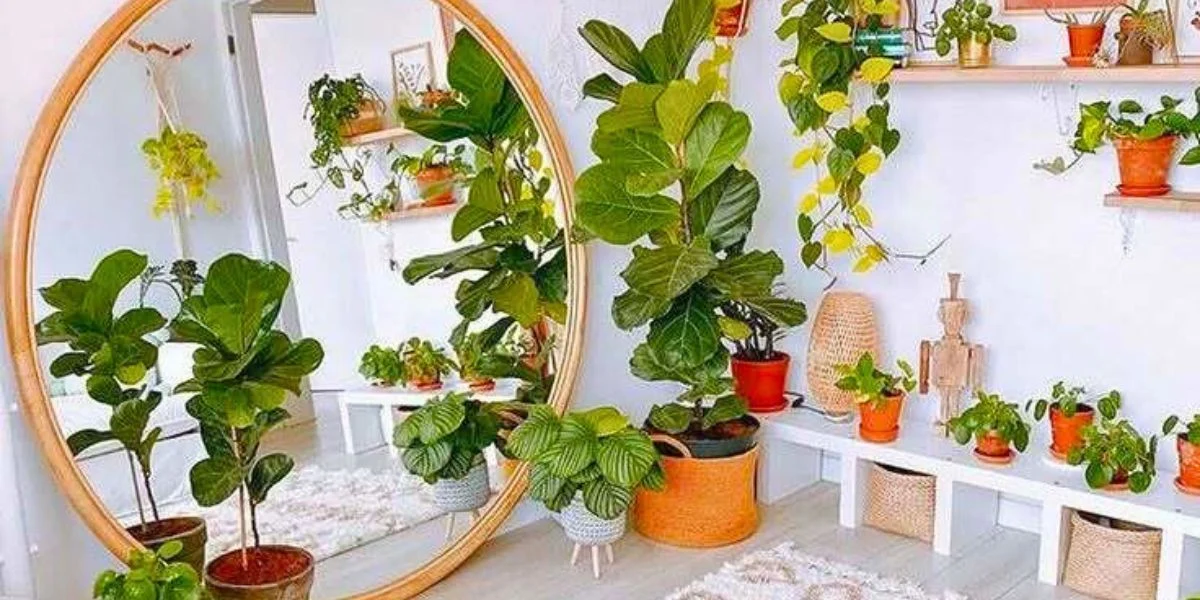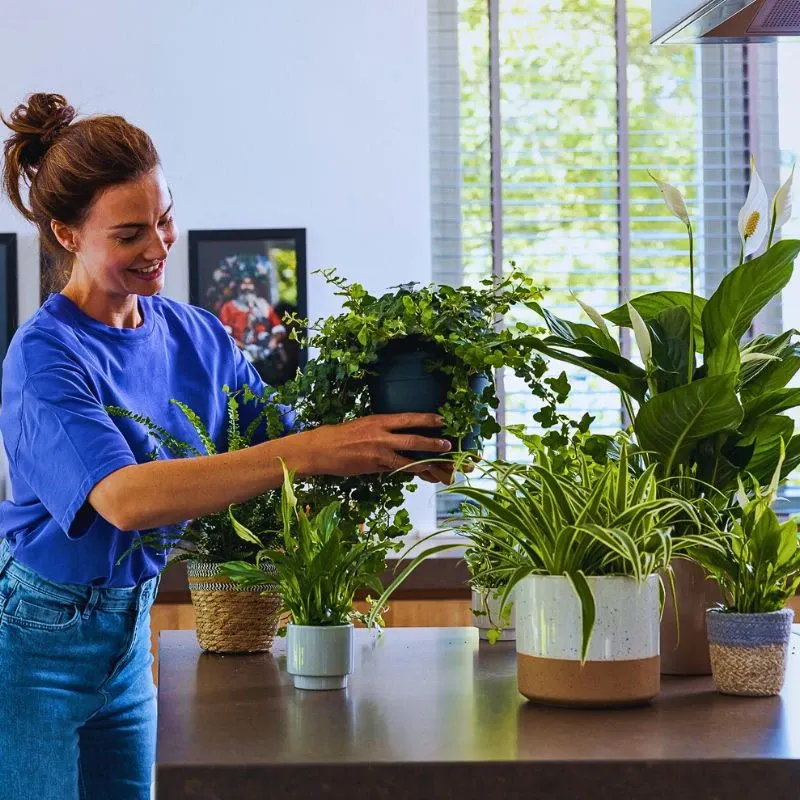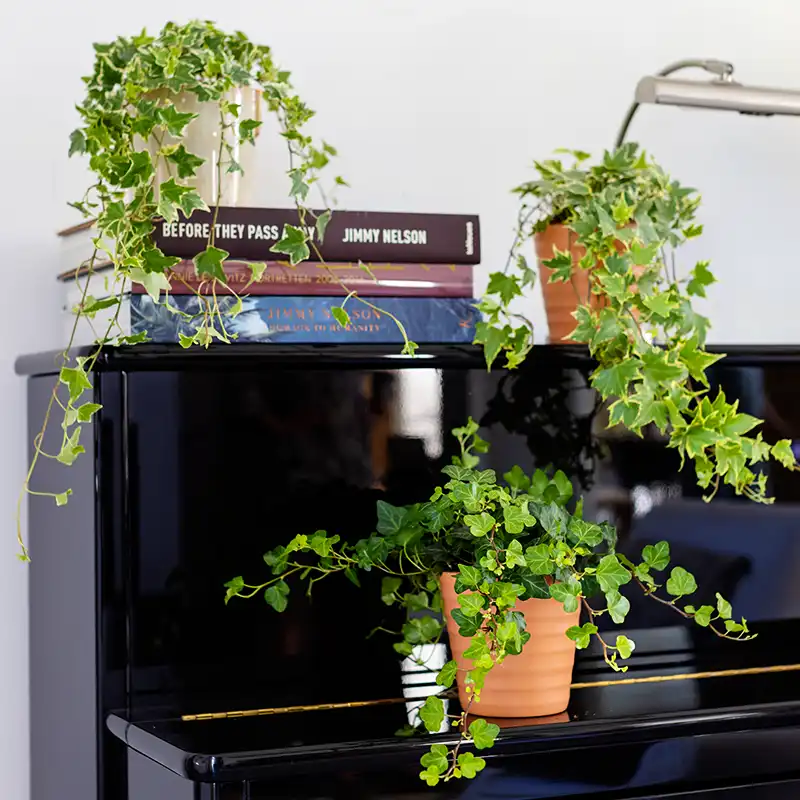Pothos, also sometimes called Devil’s Ivy, Golden Pothos, Money Plant, or Hunter’s Robe, is one of the most popular house plants in the world. And also one of the most common garden plants in the tropics. The scientific name is Epipremnum Pinnatum Aureum. Many consider it a great way to get started with plants inside your home because it’s one of the easiest houseplants to grow.
Pothos Is the #1 Houseplant
The long stems of the Pothos trail or climb by aerial roots that adhere to surfaces, make this a versatile choice for hanging baskets, plant stands, and bookshelves. It's very easy to take care of, this houseplant. Best of all, Pothos is one of the top houseplants for improving indoor air quality. Making home and office environments cleaner.
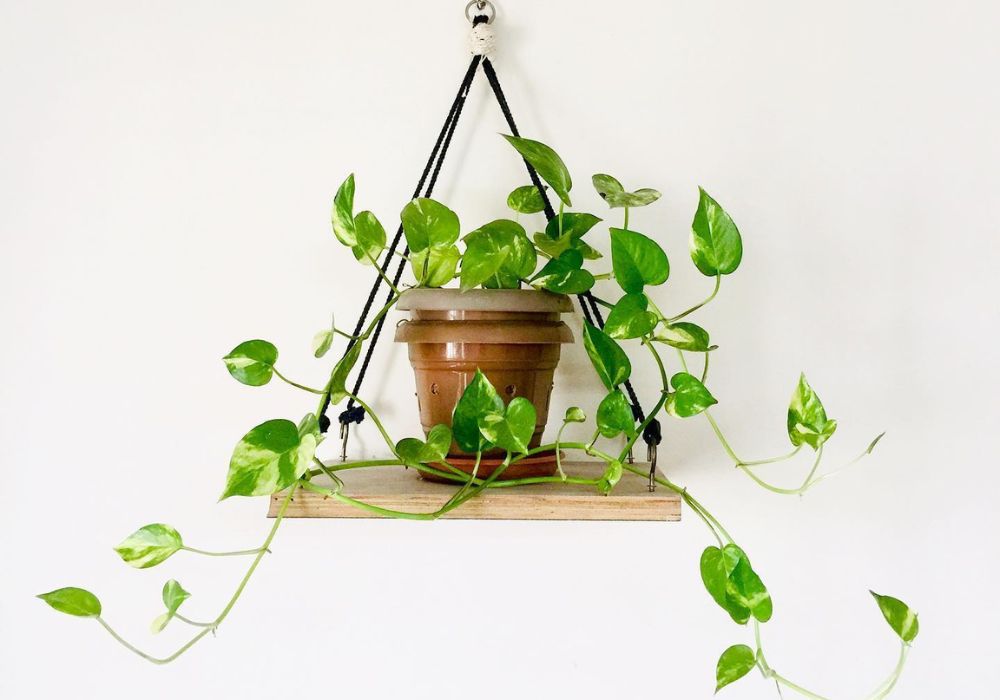
How to Grow and Care for Pothos
This low-maintenance houseplant is easy to grow and propagate. The basic care of a pothos is quite simple. These plants thrive in a variety of settings. They can be cultivated in dry soil or in water-filled containers, and they thrive in both low and bright indirect light. They perform almost as well in nutrient-poor soil as they do in nutrient-rich soil. Because they can thrive in low light conditions, (read all about plants that thrive in the shade in this article: 'Houseplants for the Shade or a Dark Room'), pothos plants are an excellent addition to your bathroom or office. Pothos do well in a range of lighting situations, but they struggle in direct sunshine behind glass.
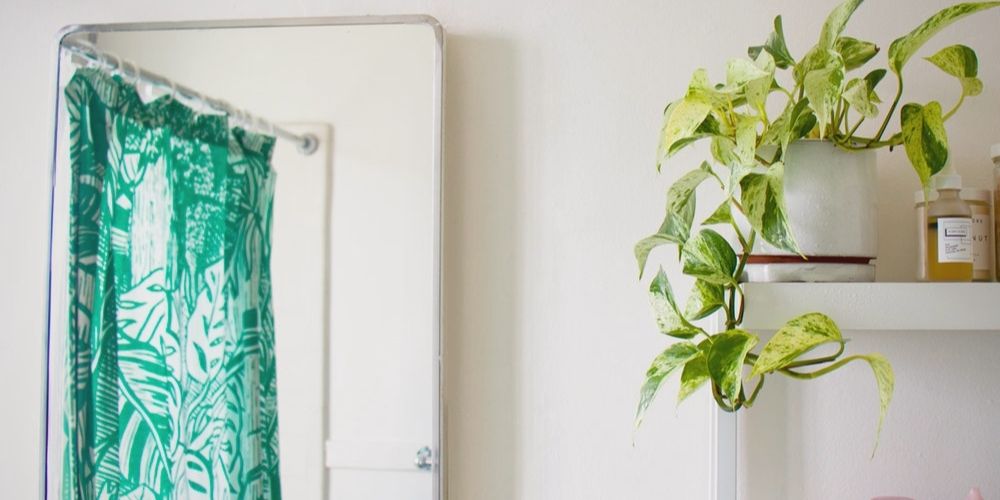
How to Care for Pothos Plants
- Keep pothos plants in a warm location; room temperature is ideal. If exposed to regular drafts or colder temperatures, the plant’s growth can be affected.
- Place pothos in bright, indirect light. They will tolerate low light, but will not grow as vigorously and may lose some or all of the variegation in their leaves.
- Only water when the soil feels dry. Pothos does not like wet soil; leaves will begin to yellow.
- Apply a diluted liquid houseplant fertilizer about once a month during the spring and summer.
- Cut back vines just above a leaf to make the plant bushier.
- The large, waxy leaves can gather dust; gently wipe them periodically.
- Remove any rotted or dead stems and any spotted leaves.
Pothos is an ideal plant for your home and office and makes a great addition to your bathroom. It's one of The seven best bathroom plants to have in 2023.

How to Propagate Pothos Plants
Pothos are beautiful houseplants to share with family, friends, and neighbors because they are very simple to grow. (You won't be criticized if you keep the children all to yourself and make your house into a pothos forest.)
Propagating the Pothos is really easy. Other easy plants to propagate, can find in this article: 'The 7 Easiest Houseplants to Propagate'.
To propagate, follow these steps:
- Locate a healthy-looking vine to take a cutting from. Leaves should be bright and healthy, and should not be wilted.
- Make a stem cutting. The ideal stem cutting will be 4-6 inches in length and have 2-3 leaves on it. Cut the vine just above a root node (i.e., the spot on the vine where aerial roots grow out).
- Once you have your cutting, place the cut end in either a small pot of potting soil or a clear glass of water. Pothos can be grown in water or soil, but be aware that cuttings can be finicky if they are transferred from water to soil or vice versa, so choose one and stick with it.
- After a few weeks, you should start to see roots (in water) or observe that the plant can support itself (in soil).
A fun fact is that Pothos do well in water alone as well. Read more about this here: 'Hydroponics - Indoor Plants Doing Great in Water Only'.
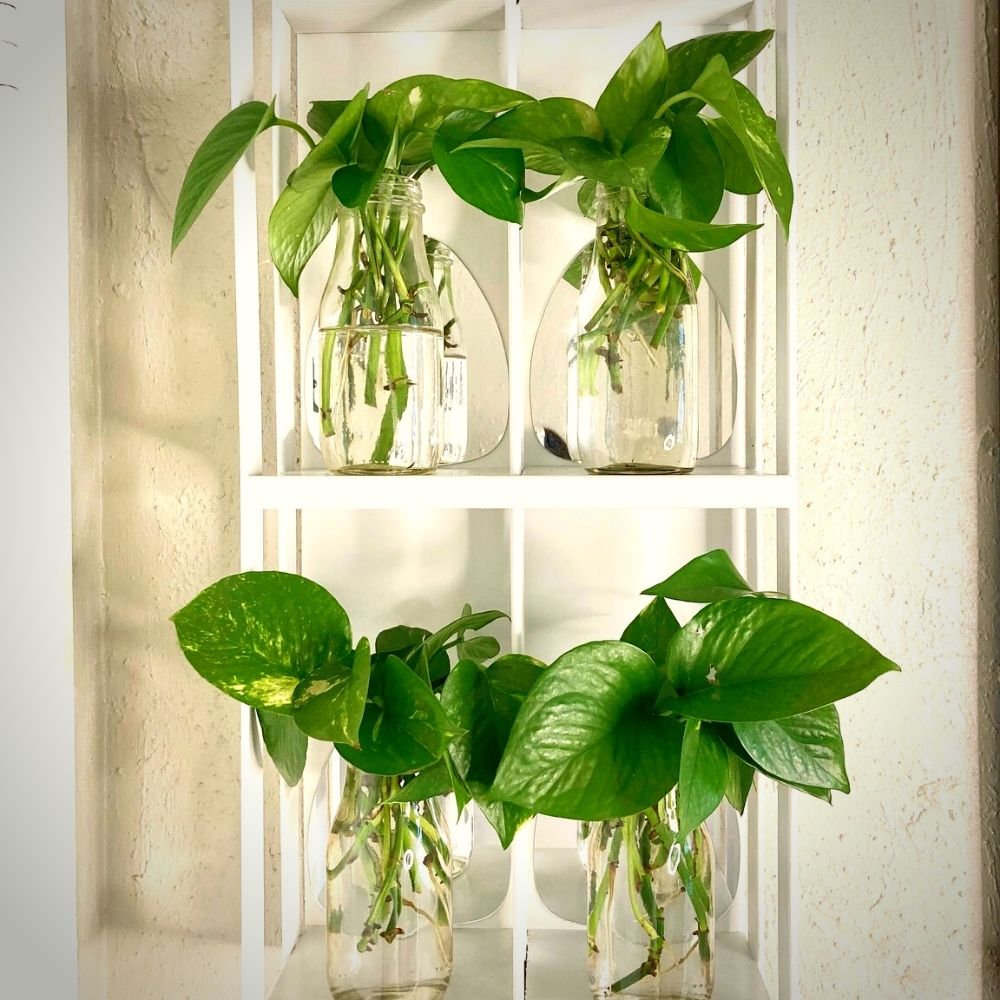
Pothos Is a Great Air Purifier
The Pothos is particularly fitting for indoor settings because it is able to filter gaseous toxins like formaldehyde from the air. They are really living air purifiers, making your interior a healthy space. Pothos houseplants are a beautiful addition to your home or office. You can find more air cleaning plants in the articles: '15 Air-Purifying Plants for 2022 Will Give Your Home a Breath of Fresh Air', 'Top 10 of Healthy Houseplants', and '35 Best Indoor Plants That Clean the Air and Remove Toxins'.
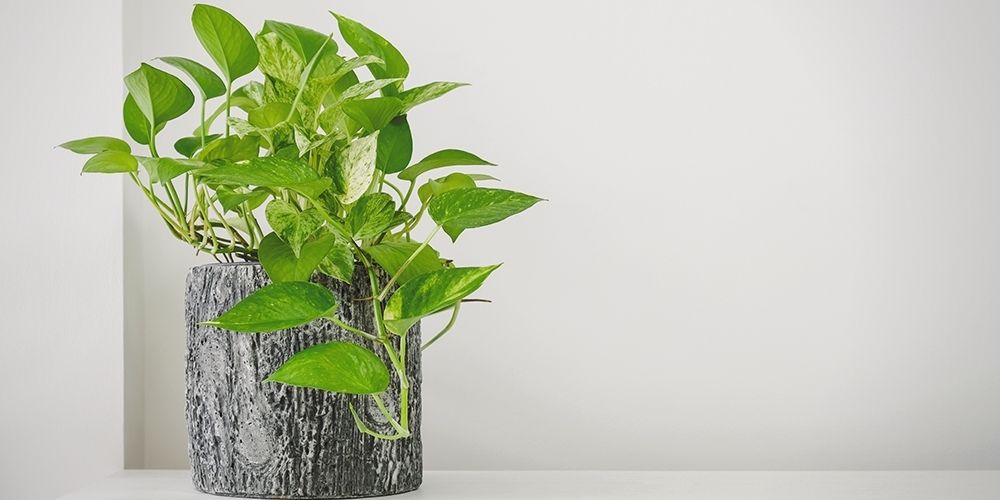
Pothos - What’s in a Name?
Pothos is the common name for the plant. It's botanically known as Epipremnum pinnatum aureum, though throughout history, it's been reclassified as a Scindapsus aureus, Rhaphidophora aurea, and Pothos. This genus of about 15 species in the arum family (Araceae) occurs from Southeast Asia to the western Pacific. Botanically, Pothos species are distant cousins of the Epipremnum varieties we enjoy indoors.
Money Plant and Devil's Ivy
And then there is the name Money Plant which is used in mainly some parts of India, because its round leaves are flat and plump, supposedly resembling coins. Other theories say it’s called that way because it thrives and grows rapidly, so anyone who grows it will always have money. It's one of The Best 12 Plants That Give Good Luck and Fortune. Another name for Pothos is Devil's Ivy. This name is a bit odd, but Pothos gained this unique nickname due to its unrivaled hardiness. It can survive almost anything!
But no matter what you call it, this plant is a delightful houseplant!
Are Pothos Plants Poisonous?
Yes. Despite being a very popular houseplant, pothos plants are mildly toxic. All parts of the plant contain a substance called calcium oxalate, which are microscopic crystals that act as a contact irritant. Ingestion of pothos can cause swelling and a burning sensation in the mouth and throat, as well as intestinal discomfort and indigestion. Due to its toxicity, this plant should be grown with caution around curious pets and small children.
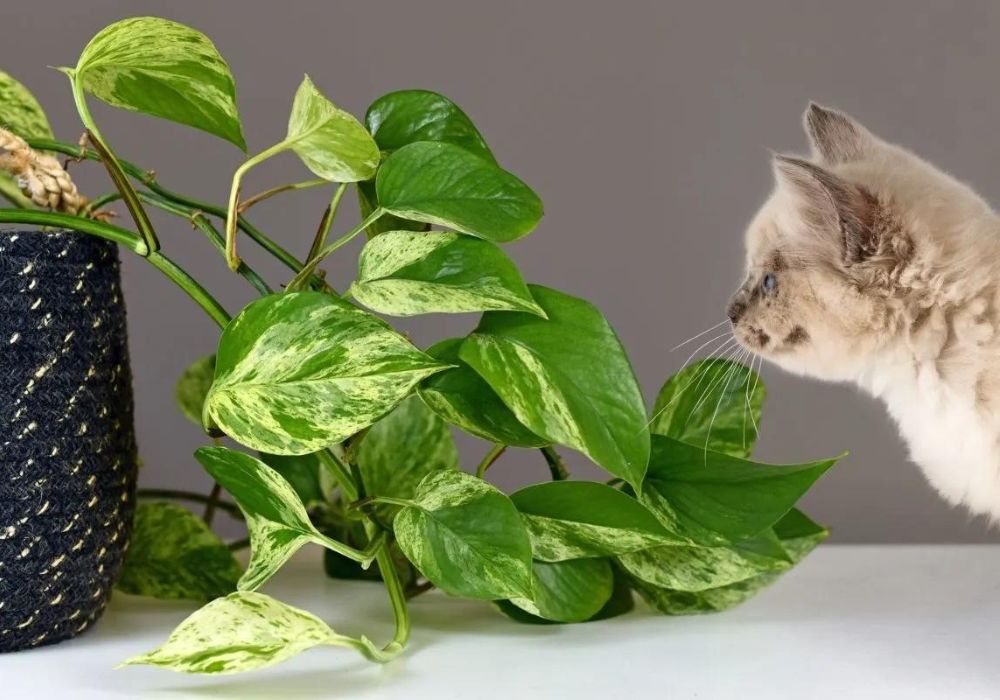
Pothos Varieties
There are several cultivars of Pothos. With various amounts of variegation. Below some of them are highlighted:
Golden Pothos
The traditional pothos variety is golden pothos (Epipremnum aureum). It features heart-shaped mid-green foliage splashed in creamy gold.

Jade Pothos
This Pothos is a solid dark green type that does well in low-light areas. Jade pothos has solid green foliage free from the speckles and stripes you see on the golden pothos. Their leaves are also slightly smaller and more pointing.
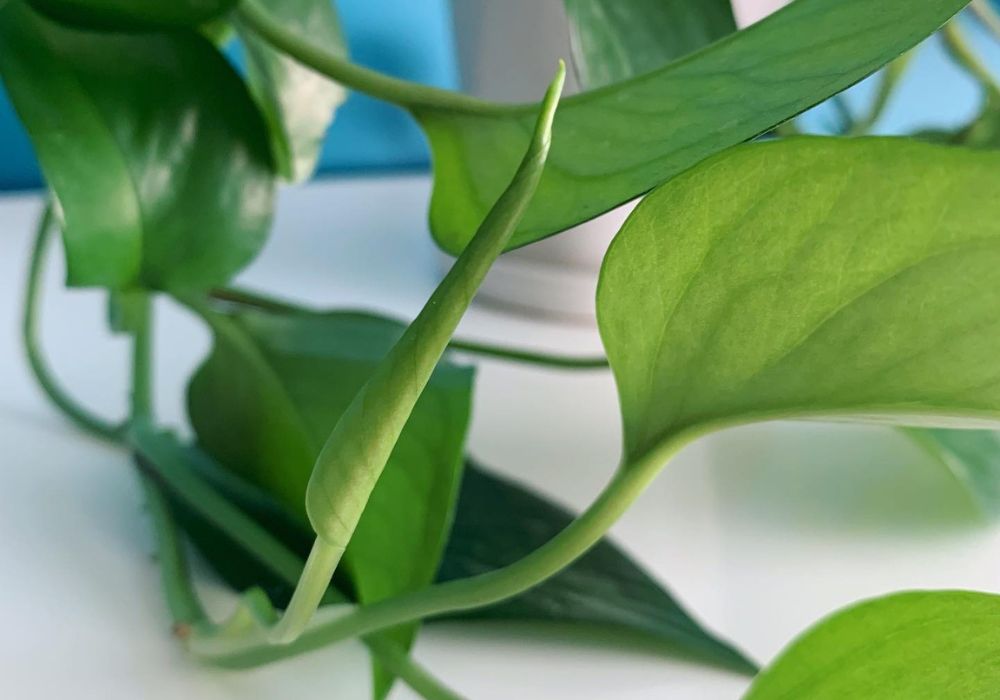
N-Joy Pothos
N-Joy Pothos is a cultivar originating from the Marble Queen Pothos. is an eye-catching variety that sports green leaves variegated with white and silvery-gray. The variegation tends to appear more on the edges of the foliage, rather than the middle. Unlike some other pothos varieties, the white sections of the foliage are often mottled with green and silvery gray tones.
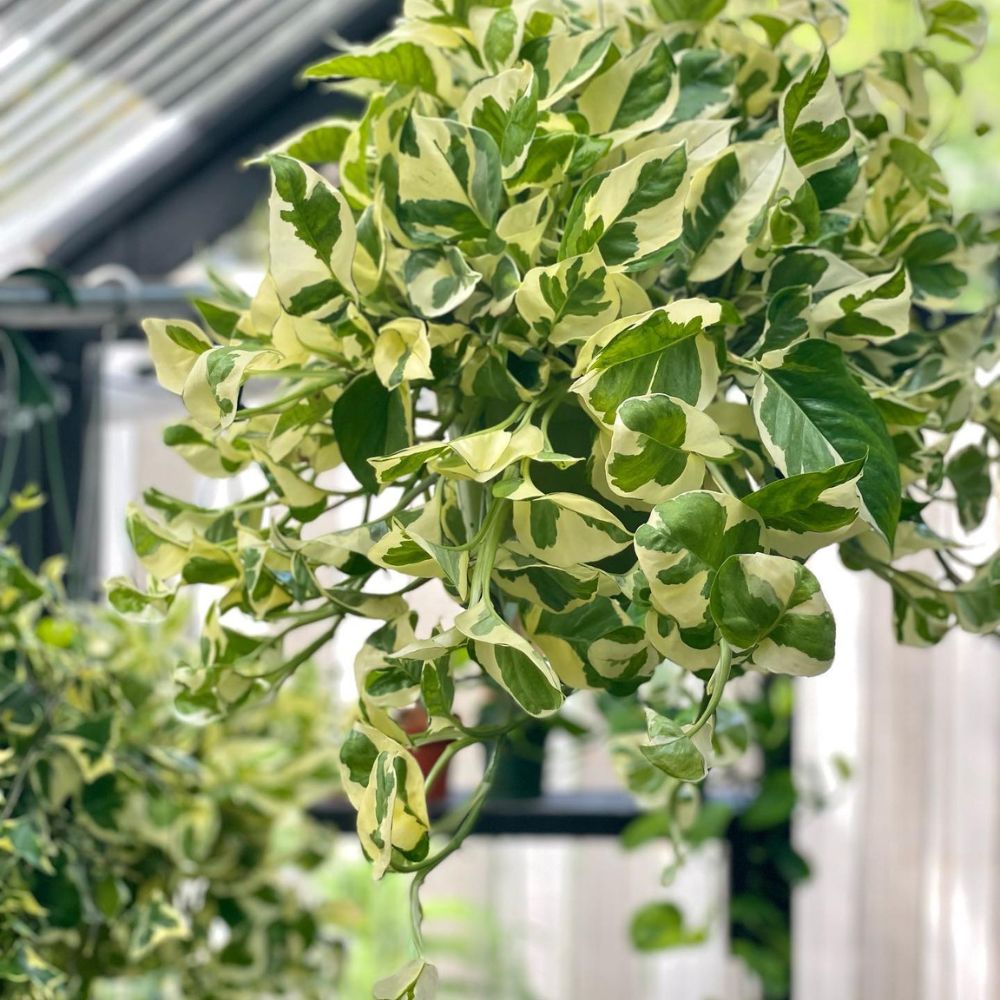
Marble Queen Pothos
Marble Queen (Epipremnum aureum ‘Marble Queen’) is another common pothos variety. It features green heart-shaped leaves heavily splashed and streaked with creamy white. The foliage is usually similar in size to golden pothos. Marble Queen may be more or less variegated, depending on the particular branch it was propagated from.
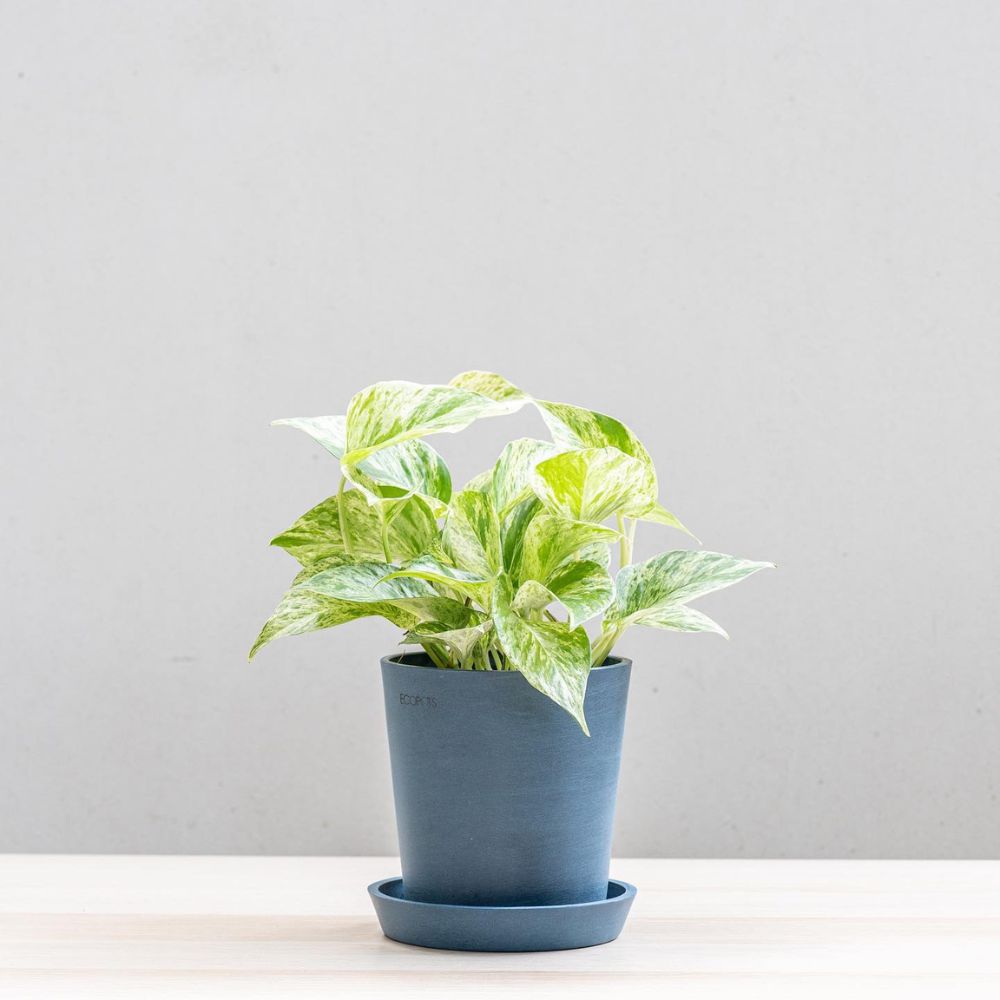
Neon Pothos
Neon pothos (Epipremnum ‘Neon’) is one of the most distinct varieties. It's sometimes called Pothos Lime as well. Its heart-shaped leaves are bright chartreuse or golden yellow in color with no variegation. The newer, younger leaves tend to be brighter than the older leaves. The foliage deepens in color with age. To get the best color, grow Neon pothos in bright light. In low-light spots, the color will be duller and darker.

Global Green Pothos
A relatively new variety introduced into the United States, Global Green is a patented selection (PP33,530) that shows off green-on-green variegation. Typically, the leaf margins are dark green with lighter green shades in the center of the leaf. It's perfectly normal, though not necessarily common, for Global Green to bear some leaves that have patches or streaks of white or cream.
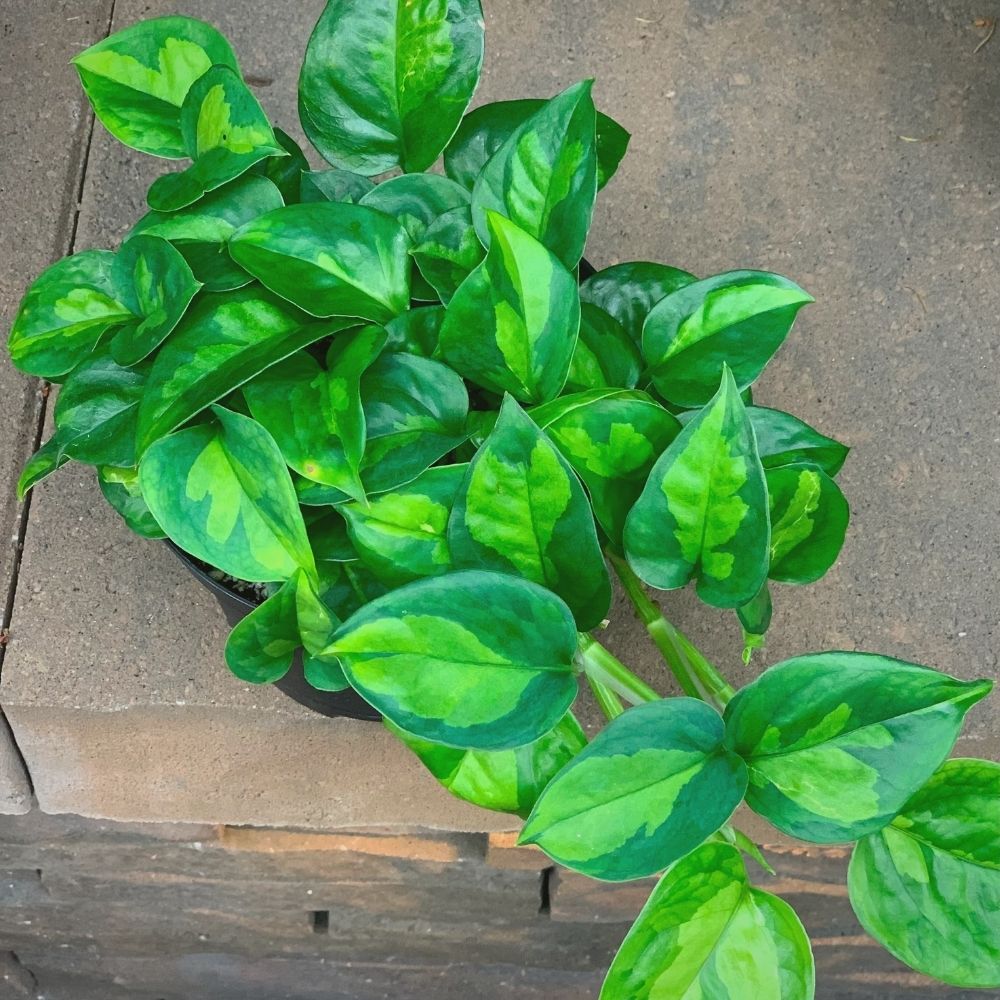
Common Pests
Pothos is usually pest-free. However, the plant can occasionally become infested with mealybugs. A simple insecticidal soap controls the pests, but the easiest method is to simply dab the insects with an alcohol-soaked cotton swab. Root rot can occur when the plant is overwatered or the soil doesn’t drain well. Leaves will turn yellow and growth will be stunted.


